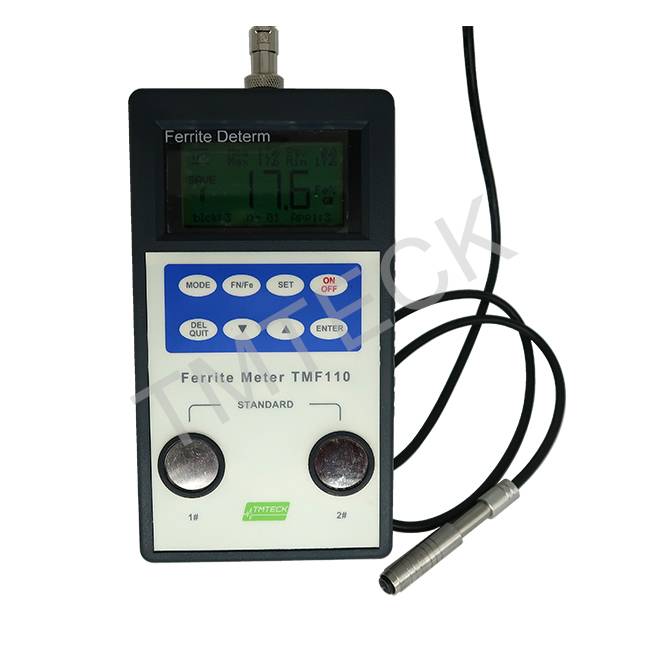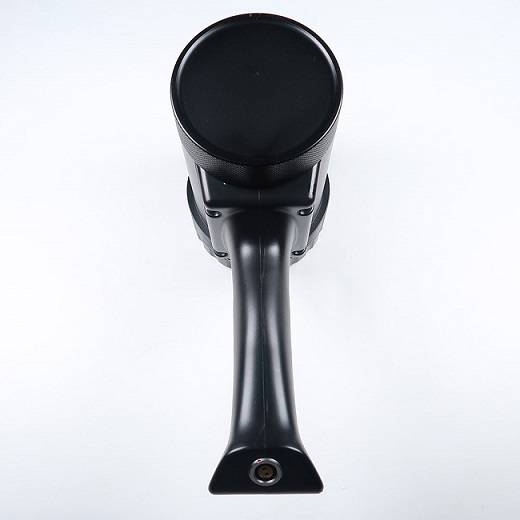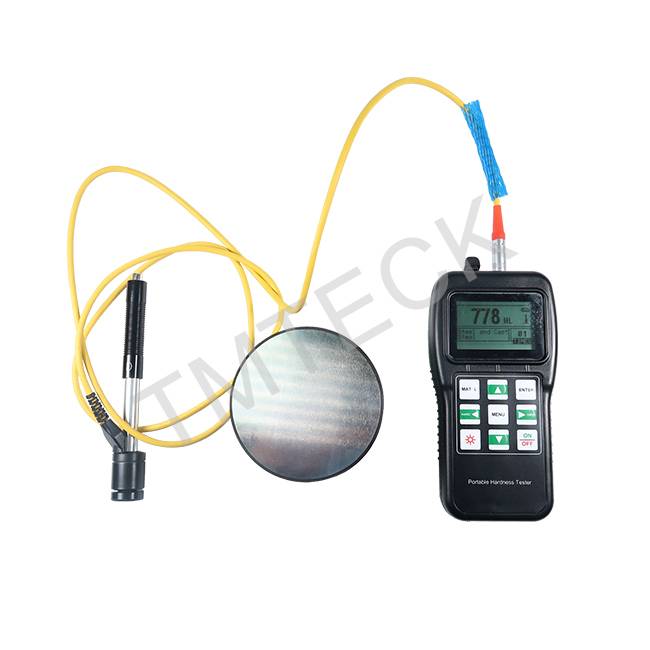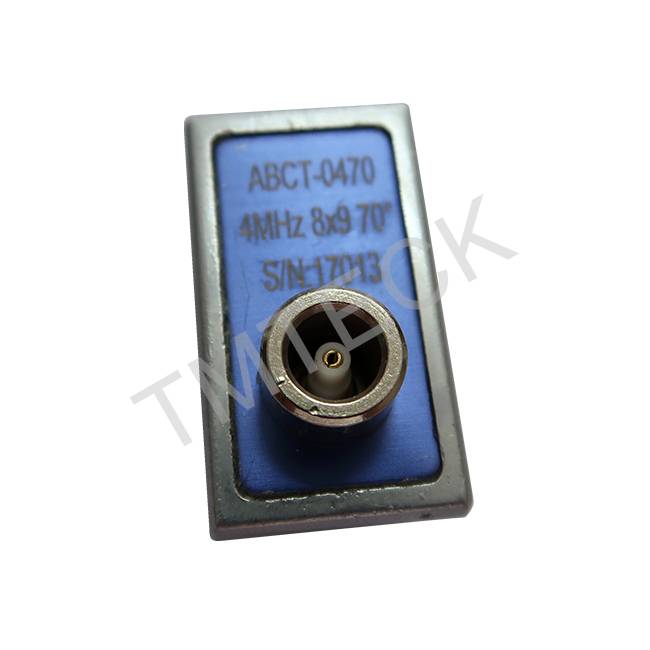Low MOQ for Digital Microhardness Tester - TM934-1 Barcol Impressor – TMTeck
Low MOQ for Digital Microhardness Tester - TM934-1 Barcol Impressor – TMTeck Detail:
Features:
A portable indentation hardness tester.
Single hand operation; no operating experience required; can test any workpiece which is reachable in any site.
Wide valid testing range equivalent to Brinell hardness 25-150HBW. Used to test the hardness of all kinds of aluminum, from very soft aluminum to very hard aluminum alloys.
Extended application. Model 934-1 is applied to test the hardness of aluminum, aluminum alloys, copper, copper alloys, fiber reinforced plastics and rigid plastics etc. The improved model of it is available to test very soft metals such as lead and tin and other soft materials such as soft plastics, rubber, felt and leather etc.
High sensitivity. Featured with 100 scales, much more sensitive than Webster hardness testers applied in aluminum alloys industry.
No supporting required. Can test from only one side of the workpiece. No need to move or support the workpiece. Used to test super large and thick worpieces and assembly parts.
Comply to standard ASTM B648-2000.
Easy conversion. The test results can be converted to HB, HR, HV and HW easily through conversion table.
Technical Parameters:
Indenter: 26°panhead cone, head face diameter 0.176mm
Testing Range: 0~100HBa,equivalent to 25~150HBW
Resolution: 0.5HBa
Indication error: hardness range 42~52HBa, ±2HBa
hardness range 84~88HBa ±1HBa
Repeatability error: hardness range 42~52HBa, ±2HBa
hardness range 84~88HBa ±1HBa
Net weight: 0.5kg
Application:
Barcol Impressor is mainly applied to test aluminum and aluminum alloys. Webster is used to test aluminum alloy extrusions, sheet and tubings. Barcol Impressor is suitable to test pure aluminum, soft aluminum alloys, super thick aluminum alloys, aluminum alloys bars and assembled aluminum alloys parts (e.g. al-alloy door &window, scaling ladder etc.)
Relevant Standard: ASTM B648 (Test Method for Indentation Hardness of Aluminum Alloys by Means of a Barcol Impressor)
Barcol Impressor is also used to test fiber reinforced plastics and rigid plastics etc. Relevant Standard: ASTM D2583-07(Test Method for Indentation Hardness of Rigid Plastics by Means of a Barcol Impressor)
The improved models of Barcol Impressor are available to test softer plastics, very soft metals, rubber and leather etc.
Disadvantage:
The surfaces of work pieces need to be broad and flat. It is inconvenient to test the hardness of strips, small-sized pieces or work pieces with curved surfaces.
There will be conversion error. When testing the hardness of aluminum section materials, the Barcol hardness need to be changed into Webster hardness, but there is 2.7 HW discrepancy between Barcol conversion table and GB Standard YS/T420-2000, so the Barcol conversion table should be used cautiously.
Standard package
Tester
Spare indenters (2 pcs)
High value Standard hardness block (1 pc)
Low value Standard hardness block (1 pc)
Calibration wrench
Supporting foot
Carrying case
Product detail pictures:
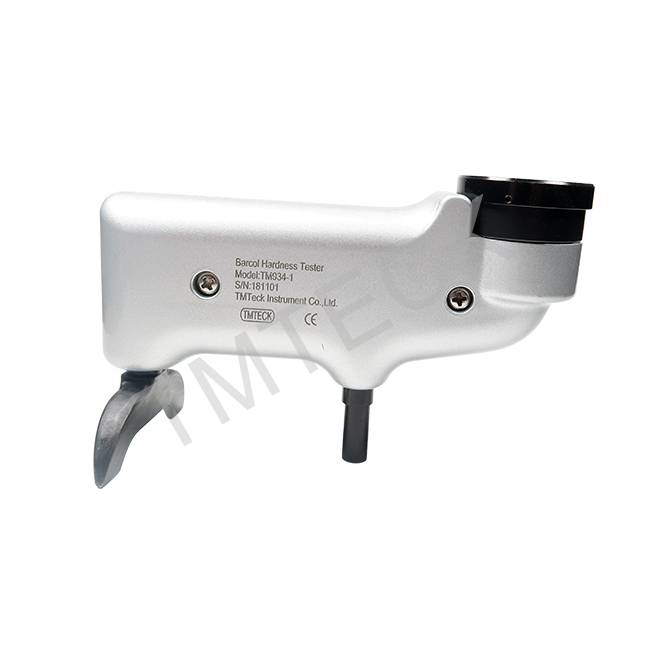


Related Product Guide:
We keep on with our business spirit of "Quality, Performance, Innovation and Integrity". We goal to create much more worth for our customers with our rich resources, state-of-the-art machinery, experienced workers and exceptional providers for Low MOQ for Digital Microhardness Tester - TM934-1 Barcol Impressor – TMTeck , The product will supply to all over the world, such as: Anguilla, Swedish, Los Angeles, We insist on the principle of "Credit being primary, Customers being the king and Quality being the best", we are looking forward to the mutual cooperation with all friends at home and abroad and we will create a bright future of business.
The accounts manager made a detailed introduction about the product, so that we have a comprehensive understanding of the product, and ultimately we decided to cooperate.

